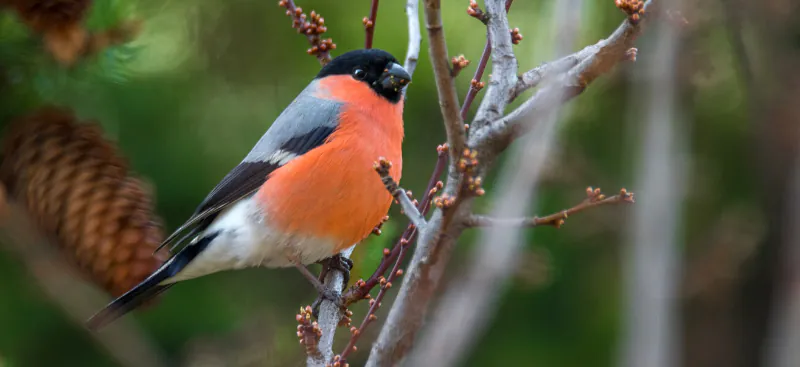Declining Garden Wildlife You Can Help Save
Any garden, big or small, can become the perfect tool to support the ecosystem and play its part in saving the planet from global warming. While helping all wildlife is paramount, some species suffer more than others, and their numbers are dwindling fast. Here are 5 declining garden wildlife species you can help save!

Birds
Birds can be wonderful friends to invite into the garden. They bring excitement, entertainment, and can be a fun hobby! Caring for wild birds has been proven to boost mental health and fill you with joy, knowing you are helping a species in need. With the right tools, you could soon be having Robins, Blue Tits, Great Tit, Goldfinch, Chaffinch, House Sparrow, Jay, Wren, Goldcrest, and much more enjoying your garden space.
Unfortunately, the population of these beautiful singing creatures is falling fast. The significant factors are that natural food and nesting holes are rapidly declining. Parks, playgrounds, and gardens are designed to look neater, our woodland areas have fewer trees, and we have a high volume of newly built houses that lack handy nooks and crannies that birds can nest in. Unfortunately, all these factors combined have contributed to a decrease in the population of many bird species.
How can I help wild birds in the garden?
- Place bird feeders in your outdoor space and regularly top up with good quality bird food.
- Place a shallow dish of clean water in your garden to keep your birds hydrated
- Put up a nest box for birds to use for nesting and roosting
- Plant bushes and shrubs to give birds shelter and protection
- Clean feeders and feeding stations to prevent diseases from spreading.
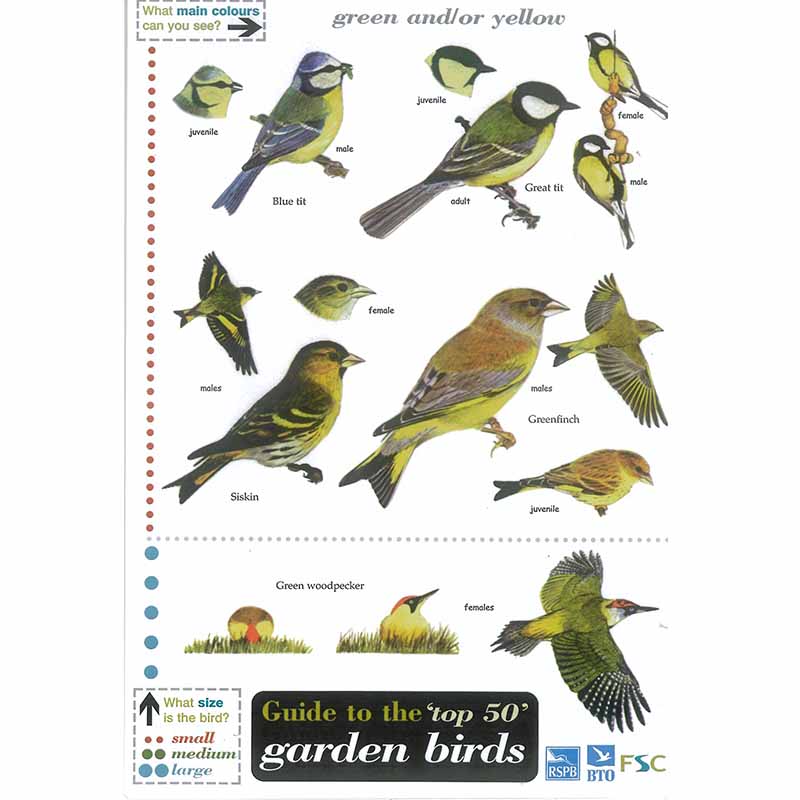
If you would like to learn more ways to help wild birds in your garden and what species you could may be visiting, check out this Field Guide - Garden Bird You can even use it as a checklist for all the types of birds you have managed to help!
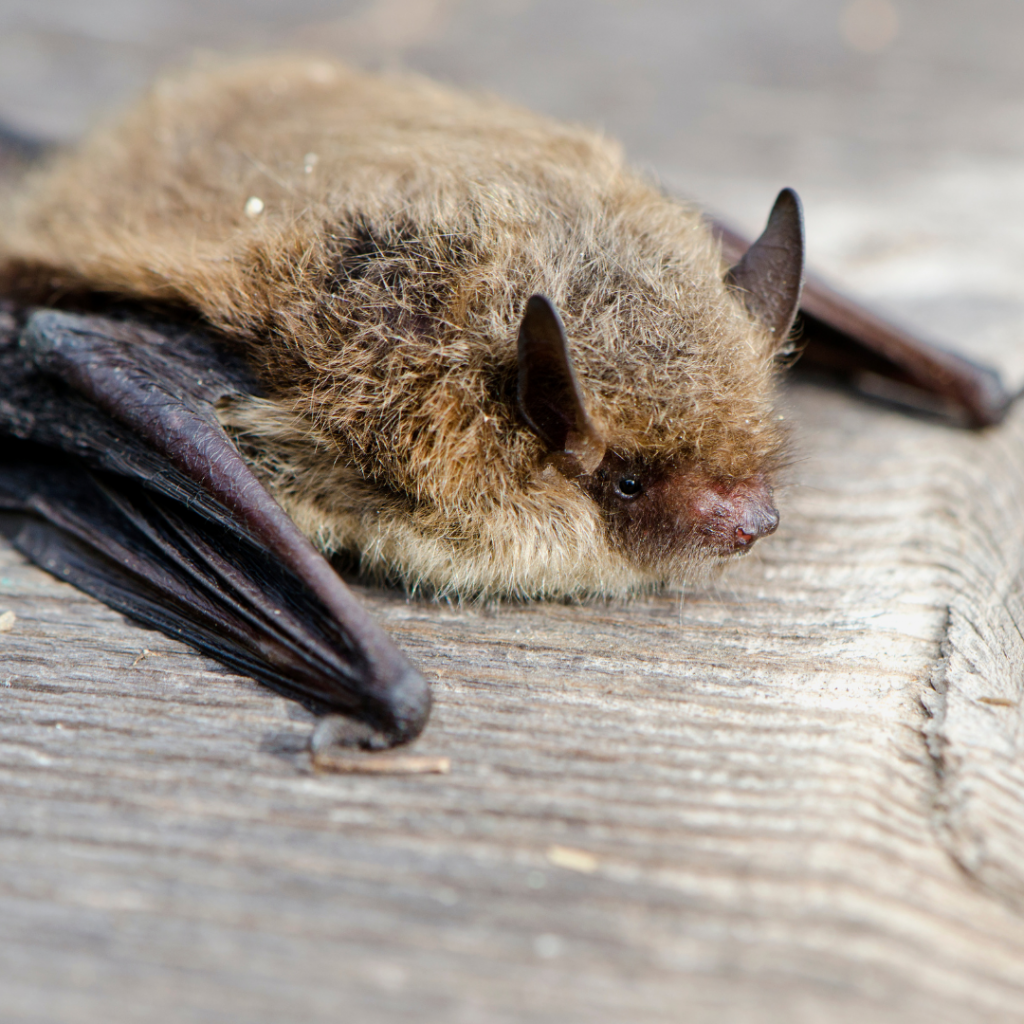
Bats
When you think of species that benefit our ecosystem, Bats may not be the first thing that comes to mind... but they should! Bats play an essential role in pest control. A new study shows that bats eat enough pests to save producers almost £1 billion per year in crop damage and pesticide costs. Not only are bats helping our economy, but they're also great for getting the annoying insects like midges and mosquitos out of your garden, saving you from the bug bites.
Sadly, these helpful pest controllers are declining in the UK. The leading cause is human activity resulting in habitat loss and disruptions. Our most common bat, the pipistrelle, has fallen in population by 70% between 1978 and 1993.
How can I help bats in the garden?
- Grow night-scented flowers like honeysuckle and star jasmine to attract insects for food.
- Put up a bat box for nesting
- Keep cats indoors at night (cat attacks also contribute to the decline in the population of bats)
- Have a regular source of clean water outside to keep bats hydrated
- Grow hedgerows and trailing plants like ivy so bats can use them for roosting
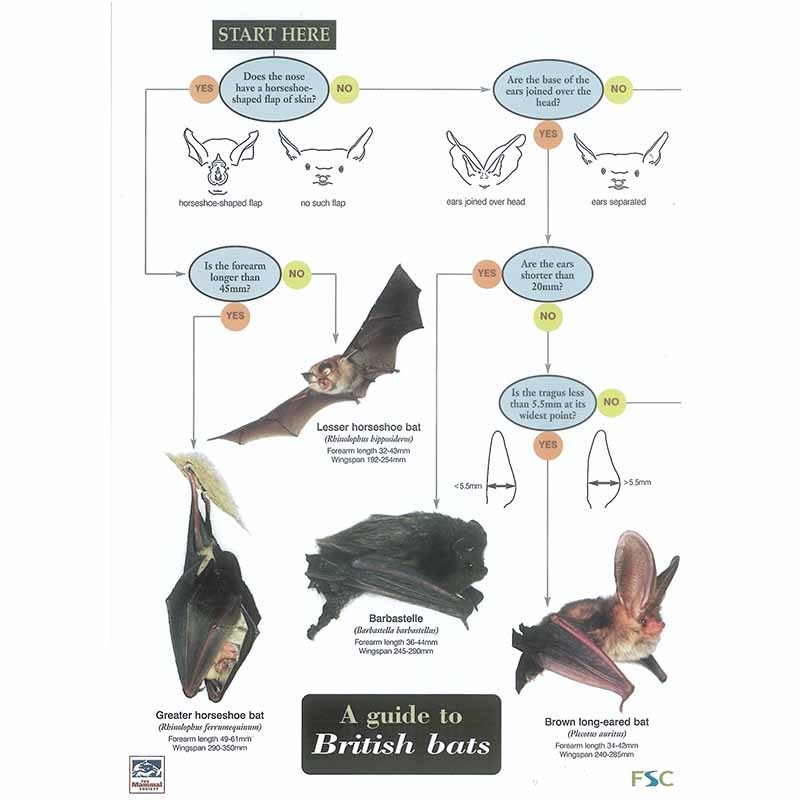
Learn more about all the 16 bat species that live and breed in Britain with this UK bat species with this Guide to British Bats. Find out the key features to identify which specie and learn key details of behaviour and flight pattern.

Bees
From the food we eat to the medicine that cures our sicknesses, bees support us in our everyday lives in more ways than we think. With honey bees alone being responsible for 80% of pollination worldwide, it goes without saying that bees play one of the most important roles in our ecosystem.
So why are we allowing such an essential insect to die out? Out of 2000 bee species, nearly 1 in 10 are facing the threat of extinction. Despite this terrifying statistic, there are currently no laws or legislation to protect them in the UK. So it's up to us and our gardens to save them!
How can I help Bees in the garden?
- Fill your garden with plants high in pollen and nectar
- Mow less to allow your garden to grow more nature friendly
- Water plants regularly, so bees have access to drinking water
- Avoid using pesticides
- Place a bee nest box in the garden to provide shelter
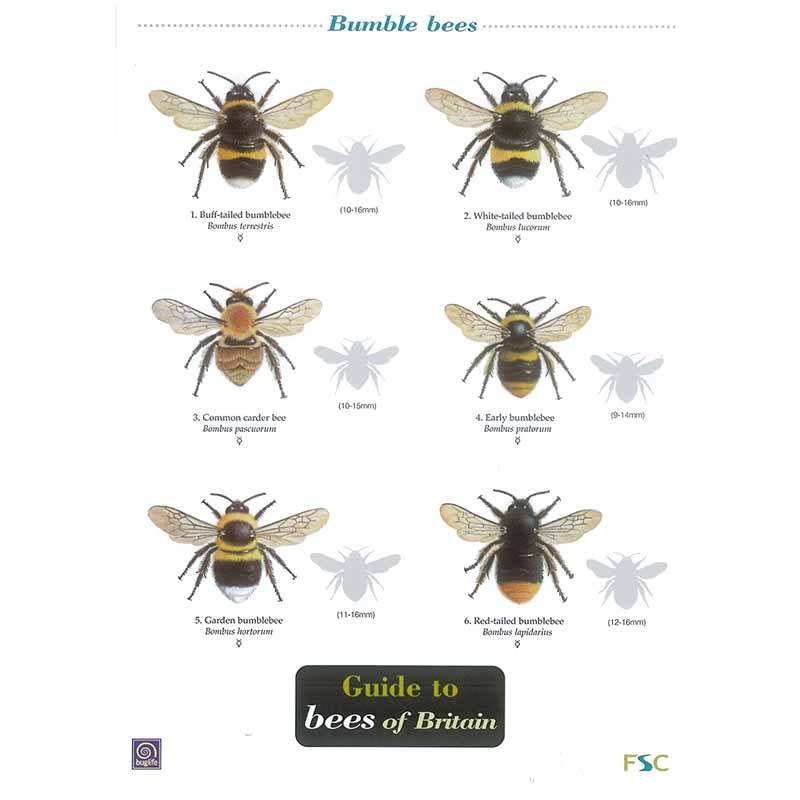
If you would like to learn more about our busy pollinators, check out this Guide to Bees of Britain. With this, you can learn interesting facts about all of Britain's Bees including their nesting and feeding behaviours

Butterflies
Though butterflies may lose the pollinating crowns to bees, they are still crucial pollinators to have. By drinking the nectar of flowers, pollen attaches to the butterfly and then can distribute in other land areas. This is an essential process for flowering plants to reproduce, which in turn helps the ecosystem and planet overall.
Unfortunately, these colourful creatures are too facing a decrease in numbers. Over the past four decades, 76% of the UK's resident and common migrant butterfly species declined in either abundance or occurrence (or both).
How can I help butterflies in the garden?
- Grow nectar-rich flowers in sunny places (butterflies love the warmth!)
- Leave fallen fruit on the ground as butterflies are particularly fond of sweet goods, especially apples, plums, and strawberries.
- Cut down on weeding to allow your garden to grow more nature friendly
- Avoid using pesticides
- Place a butterfly box outside so butterflies can use for shelter
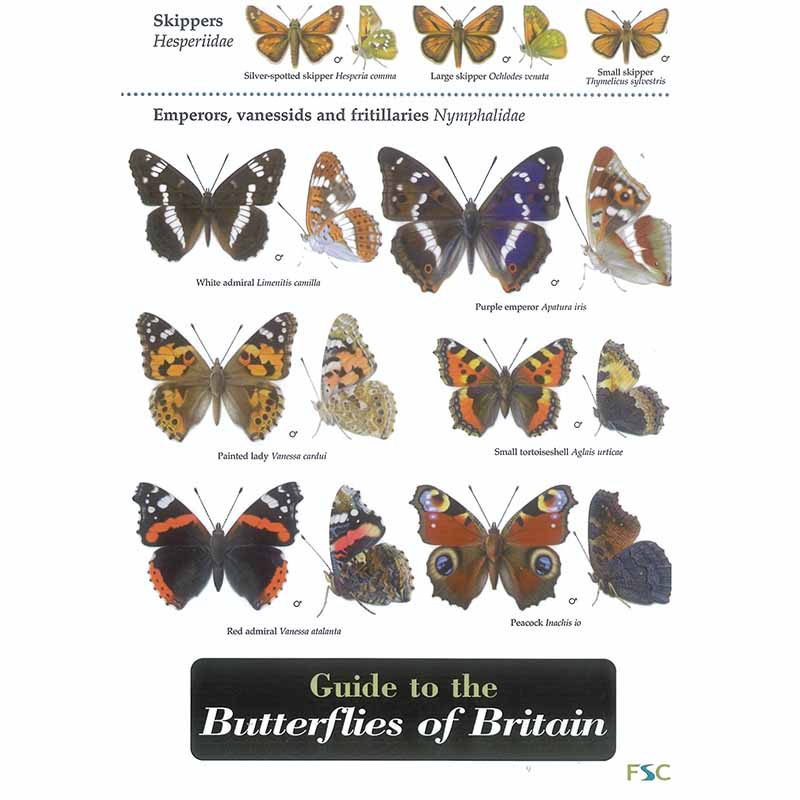
This Guide to the Butterflies of Britain will help you identify the different species that could be visiting your garden. Learn more about their habitat preferences and other ways of attracting them into your outdoor space.

Hedgehogs
Last but not least is our little hoggie friends! If you are a keen gardener, hedgehogs will be your greatest companion as they’re a natural predator of slugs. Since the millennium, the UK hedgehog population has declined, resulting in a loss of a third of urban hedgehogs. So your local hedgehogs could certainly do with your help. At the beginning of Spring, hedgehogs come out of hibernation, and it's the perfect time to make some changes in the garden to help support their population.
How can I help hedgehogs in the garden?
- Start an open compost heap that hedgehogs can use for shelters in the daytime.
- Place a Hedgehog Barn in your garden to keep hoggies safe from harm
- Place a shallow bowl of hedgehog food in the garden at dusk
- Provide a regular clean water supply using a shallow dish
- Cut a hole in the fence for hedgehogs to get around more safely
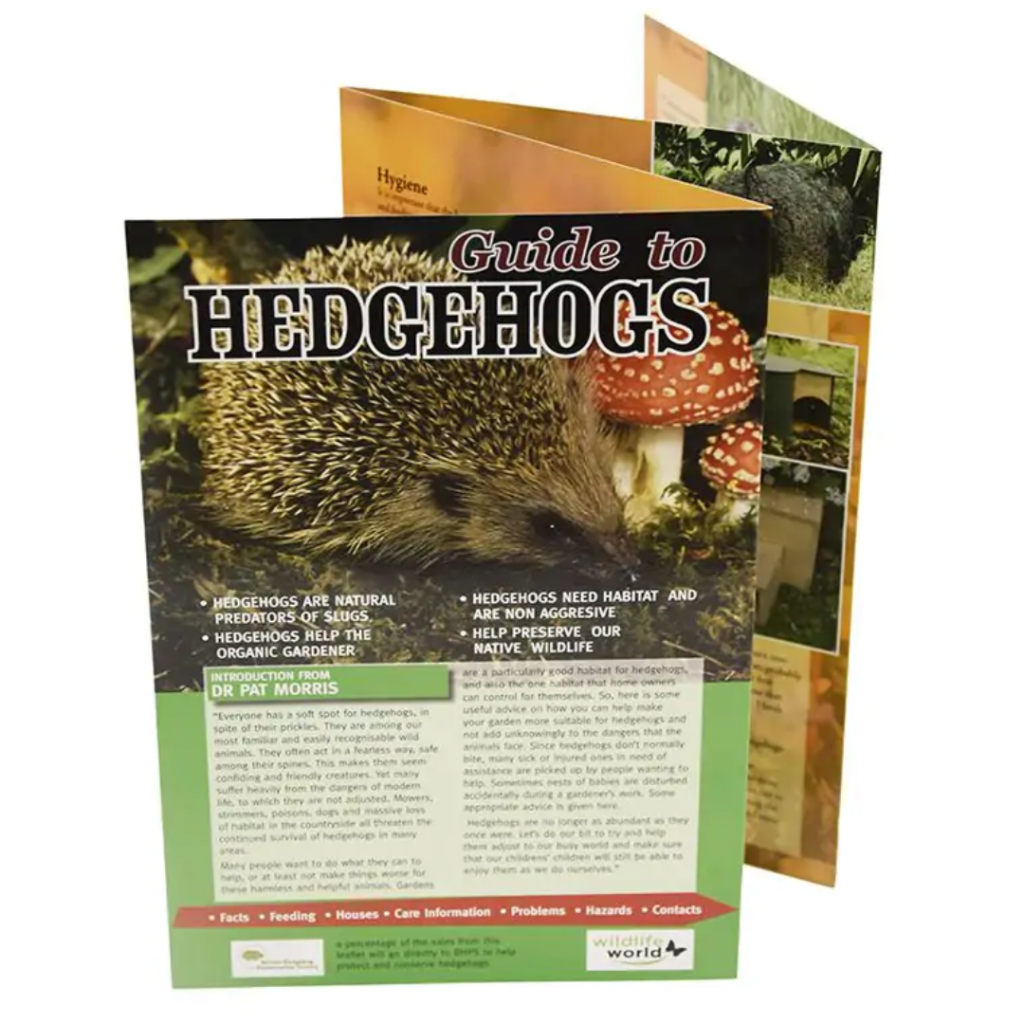
Learn everything you need to know about your garden hoggies with the Guide to Hedgehogs. With this, you can become a terrific hedgehog guardian as it will give you all the top tips to care for your local hoggies and what threats you need to look out for i.e pesticides.

